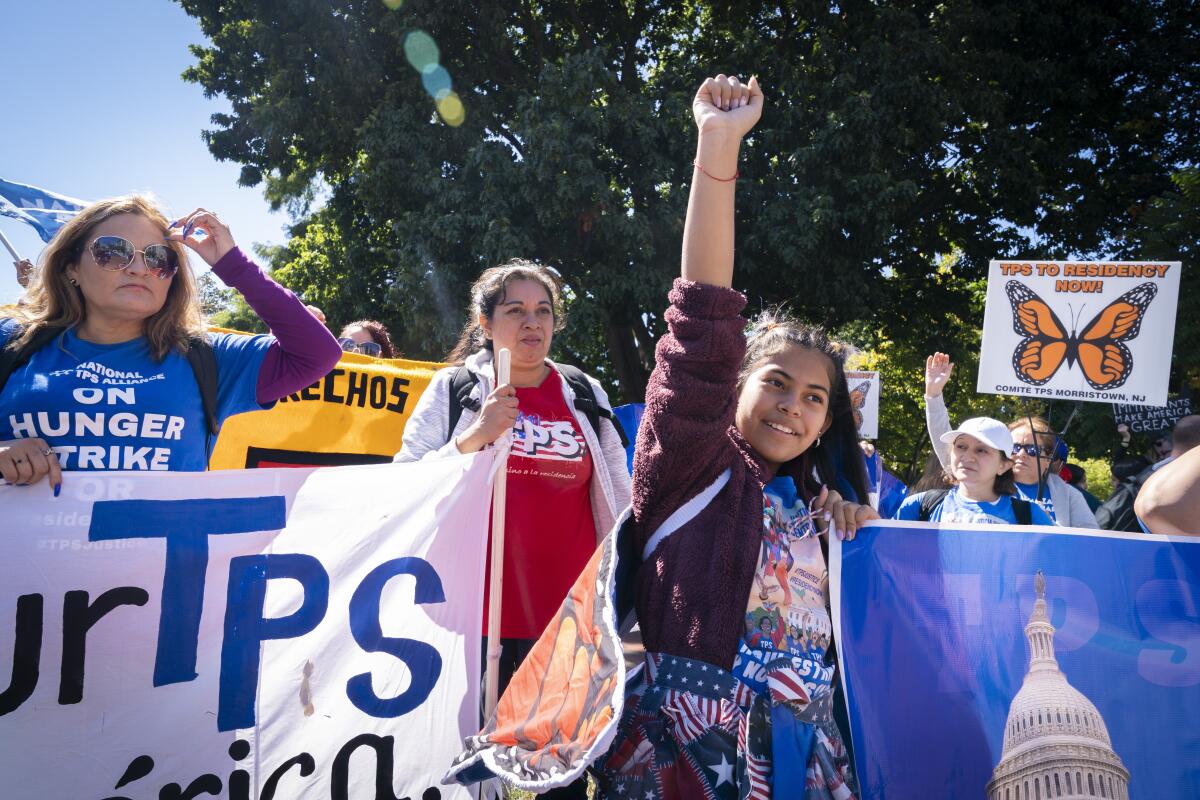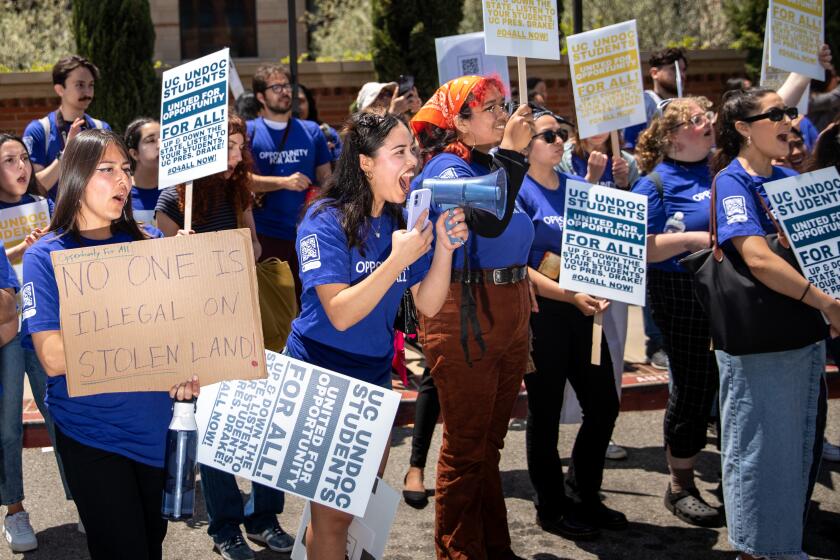Biden to extend legal status for 4 nationalities, reversing Trump but irking some

- Share via
SAN DIEGO — The Biden administration said Tuesday that it will extend the legal status by 18 months for more than 330,000 people from El Salvador, Honduras, Nicaragua and Nepal, disappointing some advocates and members of Congress who sought a more generous offer.
The extensions provide “continued safety and protection” for those already legally in the U.S. who hold temporary protected status, or TPS, which is due to end soon under Trump-era decisions, said Homeland Security Secretary Alejandro N. Mayorkas.
While the decision benefits an estimated 334,000 people from the four countries, including 239,000 from El Salvador, some had hoped for a far more sweeping gesture, including expanded eligibility for more recent arrivals from El Salvador, Honduras, Nicaragua and Venezuela.
U.S. Sen. Robert Menendez, a New Jersey Democrat who strongly pressed the White House for extensions, applauded the step but added that it “simply does not go far enough” and suggested that it “may have been driven in part by political calculations instead of sound policy rationale and the conditions in each country.”
The Biden administration’s move ensures that Haitians who have been in the country as of Nov. 6 this year will be eligible to apply for temporary protected status.
Rep. Joaquin Castro (D-Texas), who was among 116 members of Congress who signed a letter in May seeking an expansion, said the administration “has allowed political fear rather than humanitarian concern to drive its decision.”
The administration has aggressively used TPS, a 1990 law that allows people already in the United States to remain in 18-month increments if the Homeland Security secretary determines that natural disasters or civil strife prevent them from safely returning home.
Under President Biden, the number of people eligible has soared more than 70% to nearly 1 million by December, reversing a Trump-era trend, according to an analysis by the Cato Institute, which advocates for more immigration. TPS encompasses 15 countries, including Venezuela and Ukraine, up from 10 under President Trump.
The extensions announced Tuesday will apply to about 239,000 El Salvadorans through March 9, 2025, about 76,000 Hondurans through July 5, 2025, about 14,500 Nepalis through June 24, 2025, and about 4,000 Nicaraguans through July 5, 2025.
But TPS beneficiaries from Central America are required to have lived in the United States more than two decades to be eligible, prompting criticism from advocates that the administration failed to consider recent turmoil in countries including Nicaragua, which last year became one of the top sources of migration to the U.S. TPS for El Salvador was granted after an earthquake in the Central American country in 2001 and for Honduras and Nicaragua after a hurricane in 1998.
Advocates also pushed to include Guatemala, whose people have never been eligible for TPS.
The University of California intends to take a groundbreaking step to authorize hiring immigrant students who lack legal status and will explore how to do so in a six-month study.
Although nothing in Tuesday’s announcement precludes the administration from later expanding TPS, immediate prospects appeared dimmer.
“It’s a disappointment,” said Berta Sanles, who has lived in the United States without legal status since she arrived from Nicaragua with her husband and 6-year-old daughter more than two decades ago. The Miami resident says she’s holding out hope, though.
Krish O’Mara Vignarajah, chief executive of Lutheran Immigration and Refugee Service, said the extensions are “welcome relief for hundreds of thousands of people who have found safety in the United States, many of whom have called this country home for decades now.” But she also called it “a missed opportunity to expand protections to more recent arrivals, whose return to danger would be no less devastating.”
TPS has been absent from a slew of carrot-and-stick measures that the administration has announced in recent months around the end of pandemic-related asylum restrictions on May 11, known as Title 42. They include parole for up to 30,000 people a month from Cuba, Haiti, Nicaragua or Venezuela and, on the flip side, a virtual ban on asylum for those who travel to the U.S. border and cross illegally after traveling through another country, such as Mexico.
Gisela Salomon in Miami and Stephen Groves in Washington contributed to this report.
More to Read
Sign up for Essential California
The most important California stories and recommendations in your inbox every morning.
You may occasionally receive promotional content from the Los Angeles Times.












